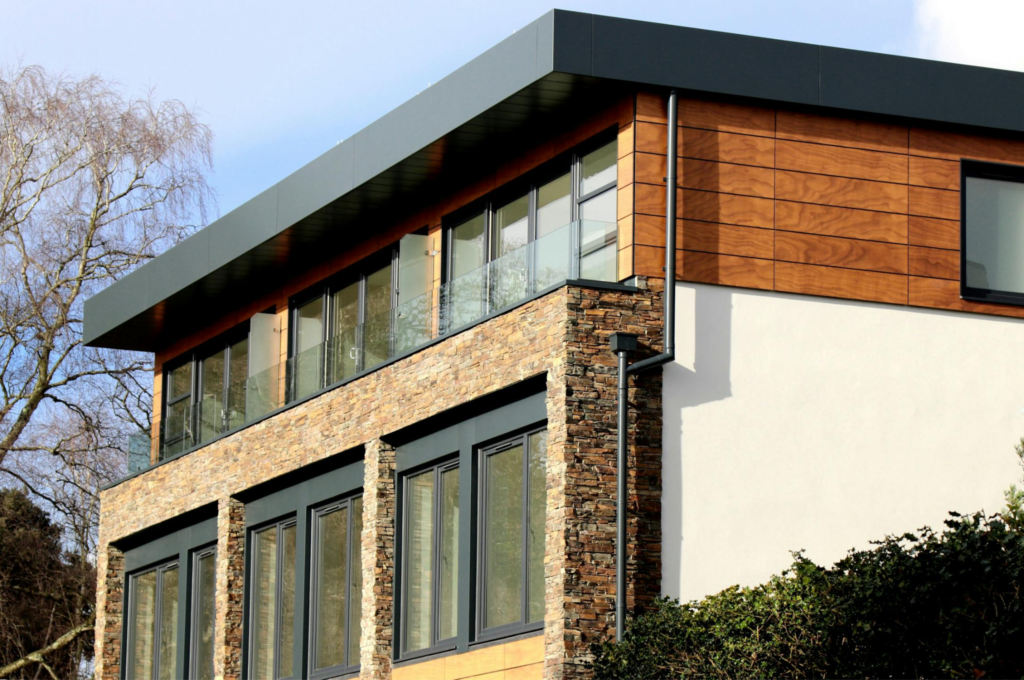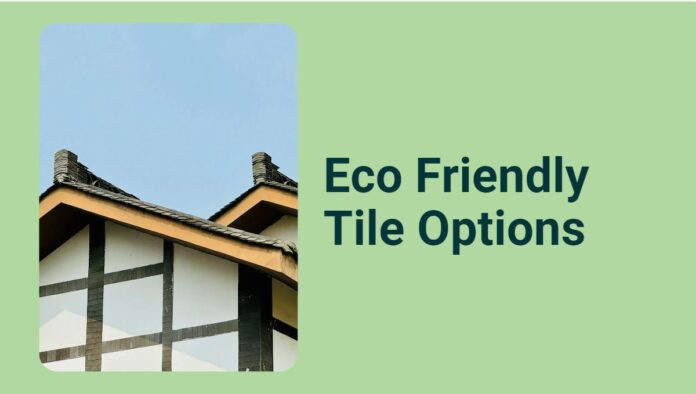With growing concerns about climate change, resource depletion, and environmental degradation, making sustainable choices in our daily lives is crucial. Eco-friendly living involves adopting practices and using products that reduce our environmental footprint, conserve natural resources, and promote a healthier planet.
One area where homeowners can make a significant impact is in the materials they choose for home construction and renovation. Tiles, a popular choice for flooring, walls, and countertops, now come in various eco-friendly options that combine sustainability with style. Here, we explore the top eco-friendly tile options for creating a sustainable home.
1. Recycled Glass Tiles

Recycled glass tiles are one of the most eco-friendly options available. They stand out as one of the most eco-friendly options available for home renovations. These tiles are crafted from post-consumer and post-industrial glass waste, materials that would otherwise end up in landfills.
By repurposing discarded glass into new tiles, manufacturers are able to reduce environmental waste and conserve resources. The process involves melting down the collected glass and reforming it into beautiful, durable tiles that are perfect for a wide range of applications in the home.
Benefits:
- Sustainability: By using recycled glass, these tiles reduce the amount of glass waste that ends up in landfills.
- Durability: Glass tiles are resistant to stains, mold, and mildew, making them ideal for bathrooms and kitchens.
- Aesthetic Appeal: The reflective quality of glass can add a unique, glossy finish to any space.
Maintenance Tips:
- Clean with a mild detergent and water.
- Avoid abrasive cleaners that can scratch the surface.
2. Ceramic and Porcelain Tiles

Ceramic and porcelain tiles are renowned for their durability, versatility, and timeless appeal. Recently, they have also gained recognition for their eco-friendly potential, especially when sourced responsibly and manufactured using sustainable practices as handcrafted clé’s artisan tile.
Many manufacturers now produce tiles using recycled content, reducing the need for virgin materials. Additionally, the production process for ceramic and porcelain tiles has become more energy-efficient over the years.
Benefits:
- Recycled Content: Many ceramic and porcelain tiles contain a high percentage of recycled materials.
- Durability: These tiles are incredibly durable and resistant to water, making them ideal for bathrooms and kitchens.
- Design Versatility: Available in countless colors, patterns, and finishes, these tiles can fit any design aesthetic.
Maintenance Tips:
- Clean with a mild detergent and water.
- Avoid using abrasive cleaners that can damage the glaze.
- Seal grout lines to prevent staining and moisture penetration.
3. Cork Tiles
Cork tiles are an outstanding choice for homeowners seeking sustainable, eco-friendly materials. Their renewable sourcing, combined with aesthetic versatility, comfort, and practical benefits, make them an excellent addition to any home. By choosing cork tiles, you not only enhance the beauty and functionality of your living space but also contribute to environmental conservation and sustainability. Whether for flooring, walls, or decorative elements, cork tiles offer a unique and responsible option for creating a green home.
Benefits:
- Renewable Resource: Cork is harvested sustainably, and the trees continue to live and grow.
- Insulation: Cork provides excellent thermal and acoustic insulation, making it energy-efficient.
- Comfort: Cork tiles are soft underfoot and provide a cushioned surface, which is beneficial for standing for long periods.
Maintenance Tips:
- Sweep or vacuum regularly to remove dirt and debris.
- Clean with a damp mop and mild soap.
- Re-seal cork tiles periodically to maintain their durability and water resistance.
4. Bamboo Tiles
Bamboo is a fast-growing grass that regenerates quickly, making it a highly sustainable material. Bamboo tiles are made from compressed bamboo fibers, which are then treated and finished to create a durable and stylish tile option. These tiles are available in various shades and patterns, mimicking the look of hardwood.
Benefits:
- Fast Growth: Bamboo grows much faster than traditional hardwood trees, making it a renewable resource.
- Strength: Bamboo tiles are strong and durable, suitable for high-traffic areas.
- Aesthetic: Bamboo provides a natural, elegant look that can complement various design styles.
Maintenance Tips:
- Clean with a vacuum or broom to remove dust and dirt.
- Mop with a damp cloth and a bamboo-friendly cleaner.
- Avoid excessive moisture to prevent warping.
5. Clay Tiles
Clay tiles, also known as terracotta tiles, are made from natural clay that is shaped and baked at high temperatures. These tiles are often left in their natural state or glazed for added protection. Clay tiles are a traditional and eco-friendly choice, known for their earthy tones and rustic charm.
Benefits:
- Natural Material: Clay is abundant and biodegradable, making it an eco-friendly choice.
- Durability: When properly maintained, clay tiles can last for decades.
- Thermal Properties: Clay tiles help regulate indoor temperatures by absorbing and releasing heat.
Maintenance Tips:
- Sweep regularly to prevent dirt buildup.
- Clean with a mild detergent and water.
- Seal unglazed clay tiles to protect against stains and moisture.
6. Linoleum Tiles
Linoleum is made from natural materials such as linseed oil, cork dust, wood flour, and natural pigments. Unlike vinyl, which is made from synthetic materials, linoleum is biodegradable and renewable. Linoleum tiles are available in a wide range of colors and patterns, offering versatility in design.
Benefits:
- Natural Ingredients: Linoleum is made from sustainable, biodegradable materials.
- Durability: Linoleum is resilient and can withstand heavy foot traffic.
- Ease of Maintenance: Linoleum is easy to clean and maintain, making it a practical choice for busy households.
Maintenance Tips:
- Sweep or vacuum regularly to keep the surface clean.
- Mop with a damp cloth and a mild cleaner.
- Periodically apply a linoleum sealer to maintain its luster.
7. Stone Tiles
Natural stone tiles, such as marble, granite, and slate, are sourced from the earth and can be an eco-friendly choice if harvested sustainably. Stone tiles bring a timeless and luxurious look to any space, with each tile offering unique patterns and colors.
Benefits:
- Natural Beauty: Each stone tile is unique, adding natural beauty and character to your home.
- Longevity: Stone tiles are incredibly durable and can last for generations with proper care.
- Eco-Friendly Options: When sourced responsibly, stone tiles can be a sustainable choice.
Maintenance Tips:
- Clean with a pH-neutral stone cleaner.
- Seal stone tiles regularly to protect against stains and moisture.
- Avoid acidic cleaners that can etch the stone surface.
Conclusion
Choosing eco-friendly tiles for your home is a great way to enhance your living space while also contributing to a more sustainable environment. From recycled glass and cork to bamboo and natural stone, there are numerous options available to suit any design style and budget.
By selecting tiles made from renewable, recycled, or responsibly sourced materials, you can create a beautiful, durable, and environmentally friendly home. Regular maintenance and proper care will ensure that your eco-friendly tiles remain a stunning feature in your home for years to come.










